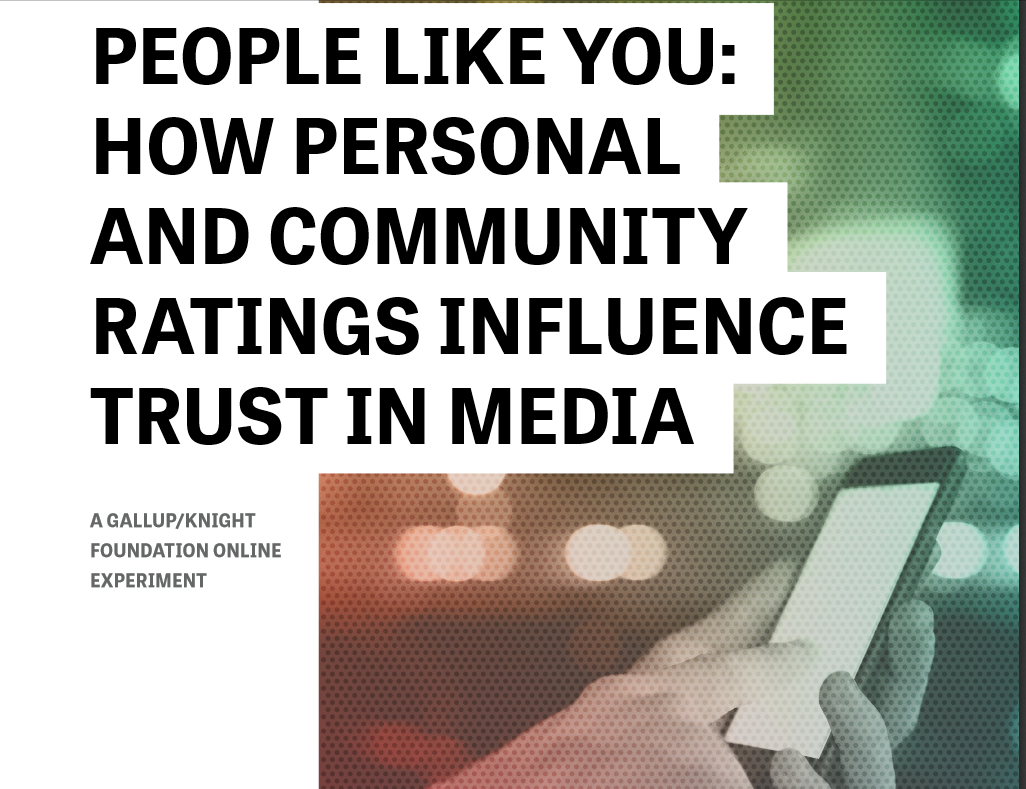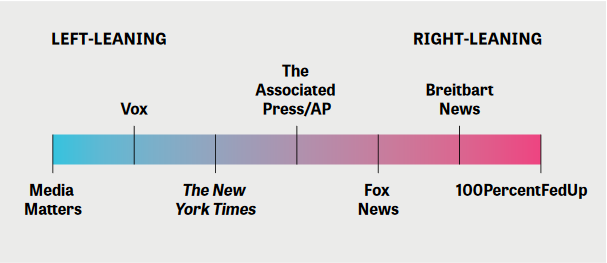Gallup/Knight Find Troubling Trend in Media Trust

The smarter way to stay on top of broadcasting and cable industry. Sign up below
You are now subscribed
Your newsletter sign-up was successful
A Gallup/Knight Foundation online experiment found that the use of opinion or behavior-based metrics by Web platforms like Facebook or Twitter to suggest news stories to their users may be contributing to a decline in trust of the media, a cycle that will be difficult to break, the foundation suggests.
One problem, the foundation pointed out, is that bots can manipulate such metrices. "As a result, both reliable and unreliable news stories [or "real" fake news] are served to users of digital platforms."
The experiment, whose results were published Wednesday (July 25), used a custom-built news aggregation platform that showed 11,695 study participants news stories from seven prominent news outlets that Gallup/Knight chose as representing the ideological spectrum from very liberal to very conservative.* The participants were asked to rate their level of trust in every news article they read using a 5-point scale.
The participants saw various "trust" ratings for those stories--an online community trust rating average and "people like you" rating based on the same gender, age, political affiliation and other factors.
The findings suggested that viewing such aggregated ratings made people less trusting of the articles they read compared with those who viewered their own past average trust rating for news or no ratings at all.
This study shows how malleable Americans’ trust in the news can be when exposed to group opinions," Gallup/Knight concluded, "and it shows how difficult it may be to break the trend of declining trust in the media. It seems that the more people know, the more skeptical they become."

The experiment was driven by the rise of digitally-based strategic targeting of news content based on a story's general popularity, or with a certain group, or with a news consumer's past behavior.
The smarter way to stay on top of broadcasting and cable industry. Sign up below
*The seven outlets, from most left-leaning to most right-leaning, were Media Matters, Vox, the New York Times, The AP, Fox News, Breitbart News and 100PercentFedup, with the Times and Fox news occupying the same position to the left and right of the AP midpoint, respectively.
Contributing editor John Eggerton has been an editor and/or writer on media regulation, legislation and policy for over four decades, including covering the FCC, FTC, Congress, the major media trade associations, and the federal courts. In addition to Multichannel News and Broadcasting + Cable, his work has appeared in Radio World, TV Technology, TV Fax, This Week in Consumer Electronics, Variety and the Encyclopedia Britannica.

